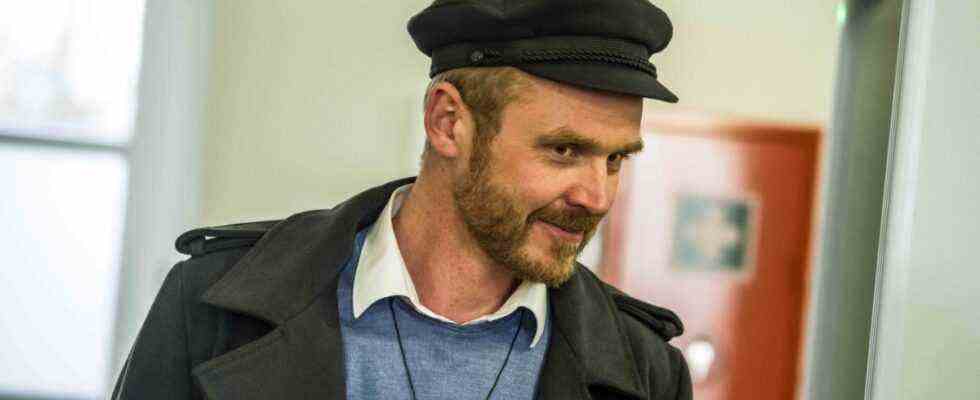It is a final defeat for Nikolai Nerling: The right-wing video blogger has failed with a constitutional complaint against his conviction for incitement to hatred. The so-called “people’s teacher” submitted this to the Federal Constitutional Court after three judicial instances had found him guilty of at least trivializing the Holocaust in the Dachau concentration camp memorial site.
Karlsruhe now smashed Nerling’s complaint. “The constitutional complaint was not accepted for decision by decision of December 17, 2021,” said a spokesman for the Federal Constitutional Court when asked by SZ. “A justification for the decision was refrained from.” This ends a year-long legal dispute that began in February 2019 in Dachau.
Pupils contribute to the condemnation of the “people’s teacher”.
At that time, Nerling visited the Dachau concentration camp memorial site to shoot a propaganda film against an alleged “guilt cult”. At the same time, the speaker Eva Gruberová guided students from the Kirchseeon high school as part of a seminar through the former concentration camp, where more than 41,500 prisoners died between 1933 and 1945. The journalist recognized Nerling, she had seen him a few weeks earlier at a right-wing extremist demonstration in Bielefeld, which she had observed for a book research – Nerling is a keyword of the German-speaking right-wing extremist scene.
Gruberová confronted him during his appearance in Dachau and alerted the administration of the memorial to expel Nerling from the site. Meanwhile, Nerling approached the high school students and told them not to believe everything they were told at the memorial. The students contradicted the self-appointed “people’s teacher”. They exposed his cover-up statements for what they are: Holocaust belittling and anti-Semitism of the past in modern packaging.
The strategy of obfuscation
After the incident, there were processes before the district court of Dachau and the district court of Munich. In it, Gruberová and the students testified against Nerling. They weighed heavily on him. With their statements, they made a significant contribution to Nerling being convicted of incitement to hatred in both trials. The negotiations revolved around the question of whether Nerling’s suggestive statements should legally be regarded as hate speech and thus as Holocaust denial, even if he did not explicitly mention words like “Holocaust” or “Shoah”.
Both the District Court of Dachau and the District Court of Munich had answered this question in the affirmative. The Bavarian Highest Regional Court, the appeals body, also confirmed the verdicts last year, although it viewed Nerling’s statements as trivializing the Holocaust and no longer as denial. Legally, this makes no difference. Now Nerling has also failed with his constitutional complaint in Karlsruhe.
The entire procedure could be trend-setting for future hate speech processes. It is the classic method of Nikolai Nerling and other right-wing extremists to crawl along the limits of what can be said in public. They make allusions, name keywords, ask suggestive questions or give Shoah deniers a stage in videos. You yourself do not explicitly deny the Holocaust because that would be punishable. But her audience knows exactly what is meant. The proceedings against Nerling have now shown that right-wing extremists can no longer be sure that this strategy of concealment will get them through.
In December last year, the city of Dachau honored Eva Gruberová and the students with the Dachau Prize for civil courage for their intervention against Nerling.

